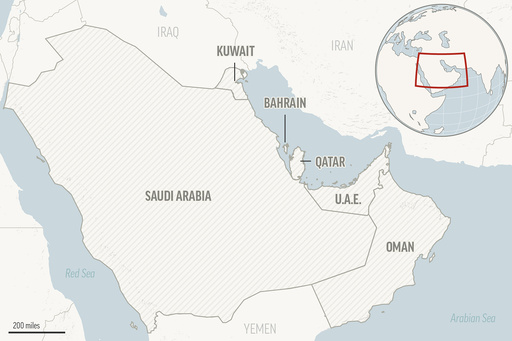
DUBAI, United Arab Emirates — On Tuesday, Qatar initiated a rapid referendum to determine the future of its limited electoral process concerning legislative seats. This decision is anticipated to lead to the termination of its brief initiative aimed at enabling elections for members of the Shura Council, the country’s advisory legislative body.
As voters headed to the polls, the focus worldwide was drawn to the unfolding U.S. presidential election. Interestingly, Qatar’s state-run news channel, Al Jazeera, briefly mentioned the ongoing voting amid extensive coverage of the U.S. elections and conflicts in the Middle East. Sheikh Tamim bin Hamad Al Thani, Qatar’s ruling emir, had confirmed last month that a vote would be conducted, but it wasn’t until Sunday that the date was officially revealed.
The polling will remain open until 7 p.m. local time (1600 GMT), with results expected to be announced the following day. To facilitate participation, all Qatari employees were allowed to leave work starting at 11 a.m. to cast their votes.
The state news agency portrayed the voting as emblematic of a “historic moment,” emphasizing the public’s eagerness to participate in what is referred to as a national celebration. Reports indicated that the vote aims to “enhance social cohesion in a manner that genuinely reflects a significant phase in the country’s collective advancement and unity.”
Qatar initially laid the groundwork for legislative elections in its 2003 constitution, yet these plans faced multiple delays. It wasn’t until October 2021 that the nation finally conducted elections for two-thirds of the Shura Council, which plays a role in law drafting, state budget approvals, and advising the emir. This political milestone followed a period of diplomatic isolation when neighboring nations Bahrain, Egypt, Saudi Arabia, and the United Arab Emirates imposed a blockade on Qatar. It also preceded Qatar’s hosting of the 2022 FIFA World Cup, which attracted significant international scrutiny regarding labor conditions and governance practices.
Despite Qatar’s importance to Western interests—exemplified by its role in facilitating the Taliban’s negotiations and aiding in the evacuation following the 2021 NATO withdrawal from Afghanistan, as well as its mediation in the ongoing Israel-Hamas conflict—internal challenges surfaced during the elections. The electoral laws differentiated between Qatari citizens by birth and those who were naturalized, effectively excluding the latter from participating in the voting process. Human Rights Watch criticized this arrangement as “discriminatory,” highlighting the exclusion of thousands of eligible Qatari citizens from both running for and voting in the elections, which led to minor protests and several arrests.
In his remarks regarding the referendum to amend the constitution, Sheikh Tamim stressed that the electoral competition among candidates largely occurs within familial and tribal frameworks, indicating a divergence of opinion on its effects on Qatar’s societal norms and longstanding traditions. He expressed concerns over the identity-based nature of the contests, stating that such divisions could lead to complex issues that the country is ill-prepared to manage.
This referendum represents another retreat from potential democratic progress within the Gulf Arab states, particularly following U.S. efforts to encourage democratic reforms in the region post-September 11, 2001. Hopes for democratic transitions in this area were also ignited during the 2011 Arab Spring.
In a similar vein, earlier this year, the ruler of Kuwait opted to dissolve the country’s parliament, an institution that, despite facing its struggles, had been recognized as the most freely operating legislative body within the Gulf that nonetheless retained the capacity to challenge the ruling authorities.
